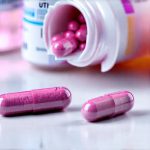Urinary tract infections (UTIs) are incredibly common, affecting millions of people each year. While often easily treated with antibiotics, the recovery period post-UTI can be surprisingly challenging for some. It’s not simply about finishing the medication; it’s about supporting your body as it heals and preventing a recurrence. Many individuals inadvertently sabotage their recovery by continuing habits that initially contributed to the infection or hinder the healing process. This article delves into what to avoid during UTI recovery, offering practical guidance to help you navigate this phase with greater comfort and confidence. Understanding these pitfalls is crucial for minimizing lingering symptoms and maximizing your chances of staying healthy long-term.
A successful UTI recovery isn’t just about eliminating bacteria—it’s about restoring the natural balance within your urinary tract and bolstering your immune system. This means being mindful of everything from hydration levels to dietary choices and even personal hygiene practices. Ignoring these considerations can prolong discomfort, increase the risk of complications like kidney infections, or lead to frequent UTIs. The following information aims to empower you with knowledge so you can actively participate in your healing process and reclaim control over your urinary health. Remember that every body responds differently, and what works for one person may not work for another. If you are immunocompromised, understanding expect from treatment is essential.
Dietary Disruptors & Hydration Hesitations
Diet plays a significant role in both triggering UTIs and supporting recovery. Certain foods and beverages can irritate the bladder lining, exacerbating symptoms even after antibiotic treatment has begun. Avoiding these is key to minimizing discomfort. Highly acidic foods like citrus fruits (oranges, grapefruit, lemons), tomatoes and tomato-based products, and vinegar should be limited during your recovery phase. Spicy foods are also notorious bladder irritants, potentially causing increased urgency and burning sensations. Caffeine and alcohol can have a similar effect; both act as diuretics, meaning they increase urine production, which can further irritate an already sensitive urinary tract.
Hydration is paramount to UTI recovery, but what you drink matters just as much as how much. While increasing your water intake is essential for flushing out bacteria and supporting kidney function, sugary drinks like sodas and sweetened juices should be avoided. Sugar feeds bacteria, potentially hindering the healing process and even contributing to antibiotic resistance. Similarly, carbonated beverages can cause bloating and discomfort, adding to the overall unpleasantness. Herbal teas (non-citrus) can be a soothing alternative, but always check for ingredients that might irritate your bladder. Plain water remains the gold standard – aim for at least eight glasses per day, or more if you’re physically active.
Beyond specific foods, consider incorporating probiotic-rich foods into your diet after completing your antibiotic course. Antibiotics, while effective against infection, can also disrupt the gut microbiome (and indirectly affect the urogenital flora). Yogurt with live and active cultures, kefir, sauerkraut, and kimchi can help restore beneficial bacteria, strengthening your immune system and potentially reducing the risk of recurrent UTIs. It’s important to note that probiotics aren’t a quick fix; they require consistent consumption to be effective. Understanding what to avoid during treatment can also help optimize recovery.
Personal Hygiene Practices to Reconsider
Maintaining good hygiene is critical for preventing UTIs, but some common practices can inadvertently hinder recovery or even increase the risk of reinfection. Douching, for instance, should be completely avoided. It disrupts the natural bacterial balance in the vagina, making it easier for harmful bacteria to thrive and ascend into the urinary tract. Similarly, harsh soaps, scented feminine hygiene products (sprays, wipes, washes), and bubble baths can irritate the sensitive tissues around the urethra and vagina, increasing susceptibility to infection.
When cleaning after using the toilet, always wipe from front to back to prevent fecal bacteria from entering the urethra. This is a simple but crucial step in preventing UTI recurrence. Consider switching to fragrance-free and hypoallergenic hygiene products during your recovery period and beyond. The goal is to minimize irritation and maintain a healthy vaginal environment.
Finally, be mindful of clothing choices. Tight-fitting pants and underwear made from synthetic materials can trap moisture and create an environment conducive to bacterial growth. Opt for breathable cotton underwear and loose-fitting clothing whenever possible. Changing out of wet swimsuits or workout clothes promptly is also important. These small adjustments can make a significant difference in your overall urinary health. If you are prone to UTIs, it’s best to avoid wearing certain fabrics and clothing styles.
Activities & Habits That Can Complicate Recovery
Certain physical activities and everyday habits can exacerbate UTI symptoms or delay the healing process. Prolonged sitting, for example, can put pressure on the bladder and urethra, potentially hindering drainage and increasing the risk of bacterial growth. If you have a desk job, make an effort to get up and move around regularly throughout the day. Similarly, strenuous exercise may temporarily weaken your immune system, making it harder for your body to fight off infection. While moderate exercise is beneficial overall, avoid pushing yourself too hard during recovery.
Sexual activity can also complicate UTI recovery, especially if you’re still experiencing symptoms. Friction during intercourse can irritate the urethra and potentially introduce bacteria into the urinary tract. It’s best to abstain from sexual activity until your symptoms have completely subsided and you’ve finished your antibiotic course. When you do resume sexual activity, urinating immediately afterward can help flush out any potential bacteria.
Finally, delaying urination is a common habit that should be avoided, both during and after UTI recovery. Holding urine for extended periods allows bacteria to multiply in the bladder, increasing the risk of infection. Make it a habit to empty your bladder regularly throughout the day—every two to three hours—even if you don’t feel an urgent need to go. This simple practice can significantly reduce your chances of developing another UTI. Planning ahead and knowing what to pack when traveling can also help manage UTIs.
It’s important to remember that this information is for general knowledge and informational purposes only, and does not constitute medical advice. Always consult with a qualified healthcare professional for any health concerns or before making any decisions related to your health or treatment.





















